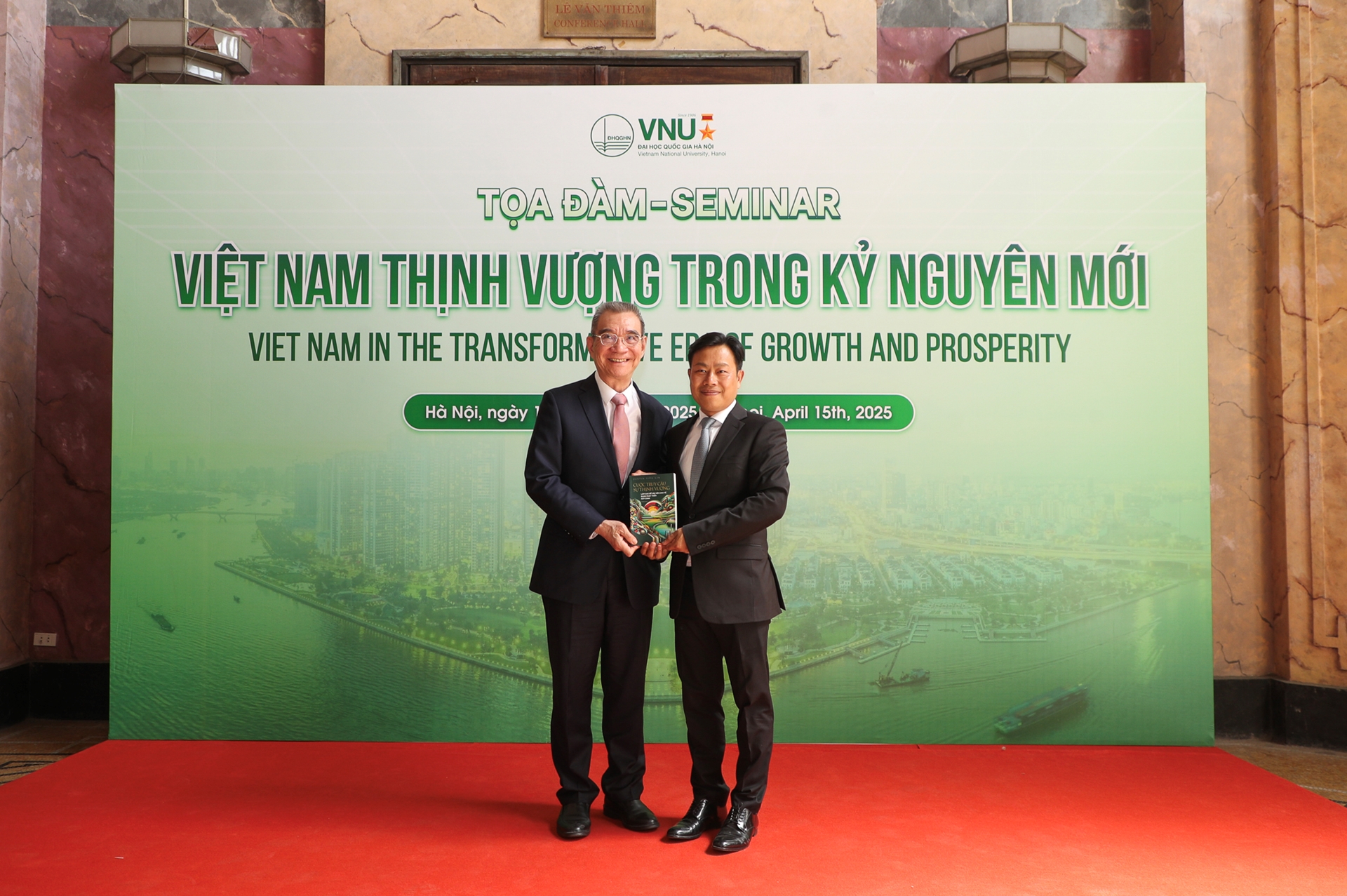 |
| Prof. Justin Yiful Lin and Prof. Le Quan |
Professor Justin Yifu Lin, Director of the Institute of New Structural Economics, Peking University (China), former Chief Economist and former Senior Vice President for Development Economics of the World Bank, was the guest speaker at the seminar.
The seminar was organized as a forum for academic and policy exchange, bringing together experts, researchers, policymakers, and business leaders to explore and discuss new economic models, structural reforms, and innovation-driven growth strategies aimed at achieving sustainable and inclusive prosperity for Vietnam in the new era. Notably, the event was held on the occasion of the State visit to Vietnam by H.E. Xi Jinping, General Secretary of the Communist Party and President of the People’s Republic of China. This marked a significant milestone in Vietnam - China education and scientific research cooperation within the Year of Vietnam - China Humanistic Exchange.
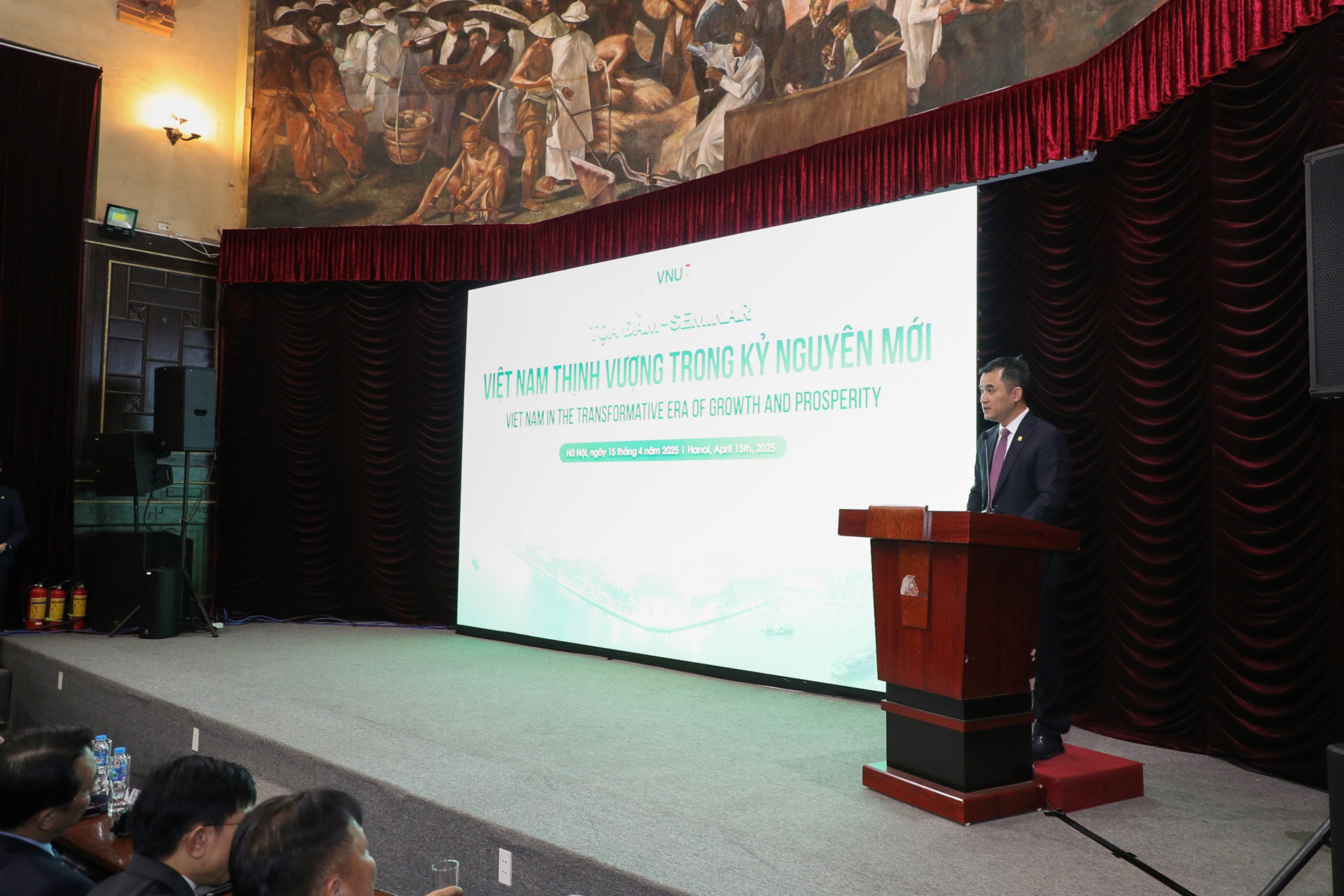 |
Speaking at the seminar, VNU Vice President Pham Bao Son shared that, with its mission as Vietnam’s leading center for education and scientific research, VNU continually strives to develop high-quality human resources and offer effective policy consultation. VNU is proud to contribute to the implementation of the major directives and resolutions of Vietnam’s Party and Government, such as Resolution 45 on intellectual development, Resolution 57 on science and technology, innovation and national digital transformation, and the forthcoming resolution on the private economy.
VNU has established and actively expanded partnerships with a large number of Chinese leading educational institutions, including Peking University, Tsinghua University, Nanjing University, Xiamen University, the University of Macau, ... These collaborations have not only facilitated the exchange of best practices in education, research, and innovation but have also elevated the scope and quality of bilateral cooperation in education, science and technology in the digital intelligence era.
In the context of the global economy facing many uncertainties and the international trade order undergoing significant changes, we are more and more aware of the important role of international cooperation and sustainable development. These complex developments require flexible and innovative strategies to overcome adversity and seize emerging opportunities.
At the seminar, Prof. Justin Yifu Lin delivered a speech entitled “Vietnam in the transformative era of growth and prosperity: a new Structural Economics perspective”.
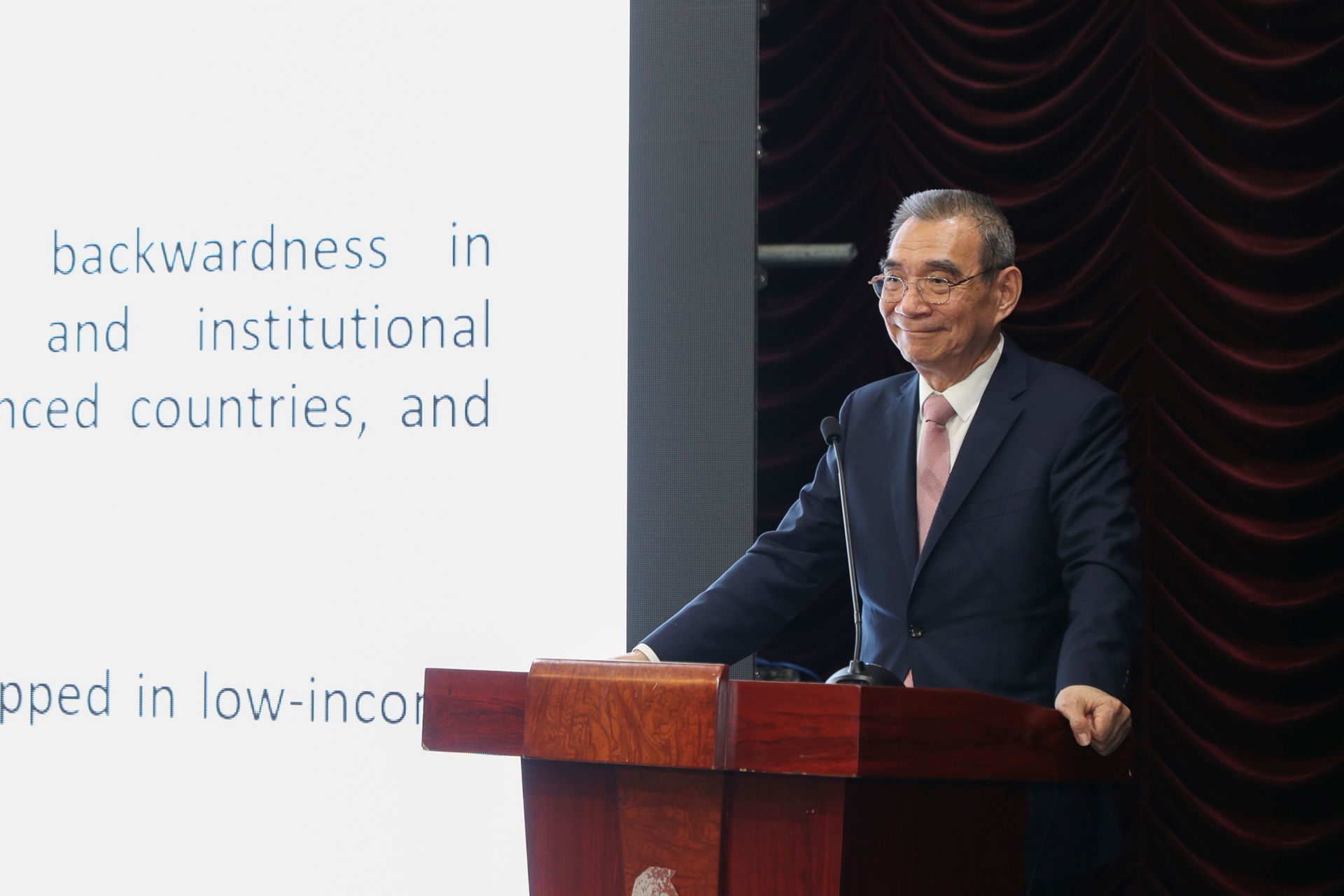 |
From the perspective of New Structural Economics, informed by his extensive research and years of experience as Chief Economist of the World Bank, Prof. Justin Yifu Lin emphasized his enduring belief that while the pursuit of prosperity is challenging, opportunities are equally available to all nations, especially developing economies.
According to Prof. Justin Yifu Lin, the essence of modern income growth lies in a continuous process of structural transformation in technology and industries, aimed at enhancing labor productivity. This transformation must be accompanied by improvements in both soft and hard infrastructures to reduce transaction costs. Developing countries, he noted, possess a latecomer advantage in technological innovation, industrial upgrading, and institutional reform, which gives them the opportunity to grow faster than developed countries. However, many of these countries remain stuck in low- or middle-income traps. According to Prof. Lin, both traps result from the failure to dynamically implement structural transformation, which prevents developing economies from outpacing more advanced ones.
So how can these countries escape the traps and realize their aspirations for prosperity? The answer is that policymakers should thoroughly understand the drivers of national development and identify latent comparative advantages. This involves recognizing a country's resource endowment and its evolution over time, as well as enabling the development of new industries aligned with the latent comparative advantages. Such an approach, according to him, is the secret to achieving prosperity.
He illustrated his points by tracing the evolution of global economic growth theories and practices. He outlined the major growth paradigms and decisive mechanisms, such as the state-market relationship, import substitution versus export orientation and discussed competing schools of thought: classical, Keynesian, neoclassical, old structuralism, new structuralism, etc. Drawing on empirical evidence from developing countries, he provided insights and policy suggestions appropriate for Vietnam's context.
He concluded that a developmental state which plays a coordinating role, applies flexible industrial policies, and maintains clear strategic goals is essential for helping Vietnam and other middle-income countries overcome stagnation and ascend to high-income status. If the government plays a supportive role within an efficient market to transform latent comparative advantages into actual ones, then Vietnam can achieve dynamic growth, potentially even surpassing that of developed economies.
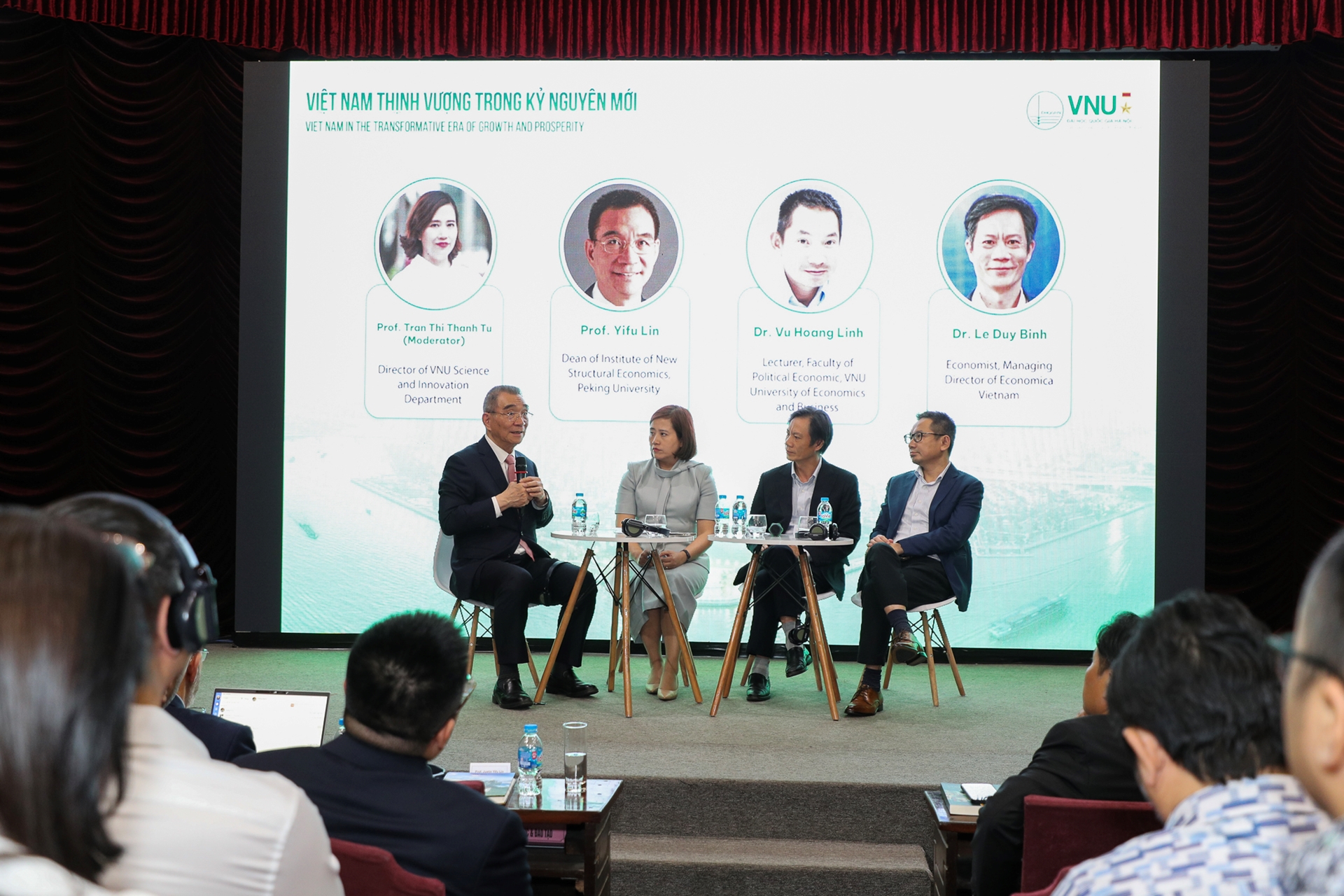 |
During the roundtable discussion moderated by Prof. Tran Thi Thanh Tu, Director of VNU Department of Science and Innovation, experts, researchers, and policymakers engaged in in-depth discussions on strengthening the development of science, technology, innovation, new economic models, private economy support, …
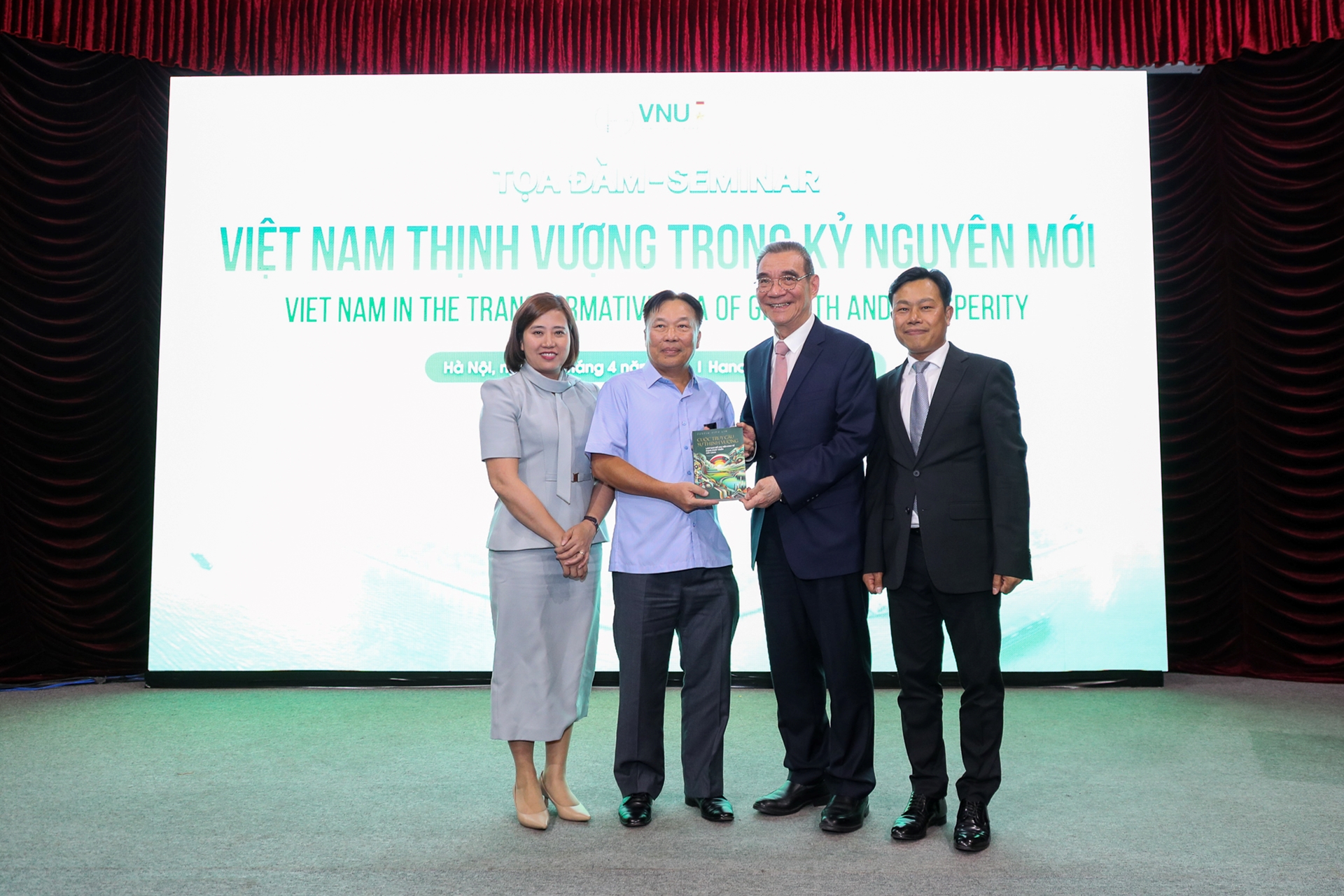 |
| VNU President Prof. Le Quan, Prof. Justin Yifu Lin, Chairman of the Board of Directors of IMG Investment Joint Stock Company Mr. Le Tu Minh, and Director of VNU Department of Science and Innovation Prof. Tran Thi Thanh Tu (From right to left) |
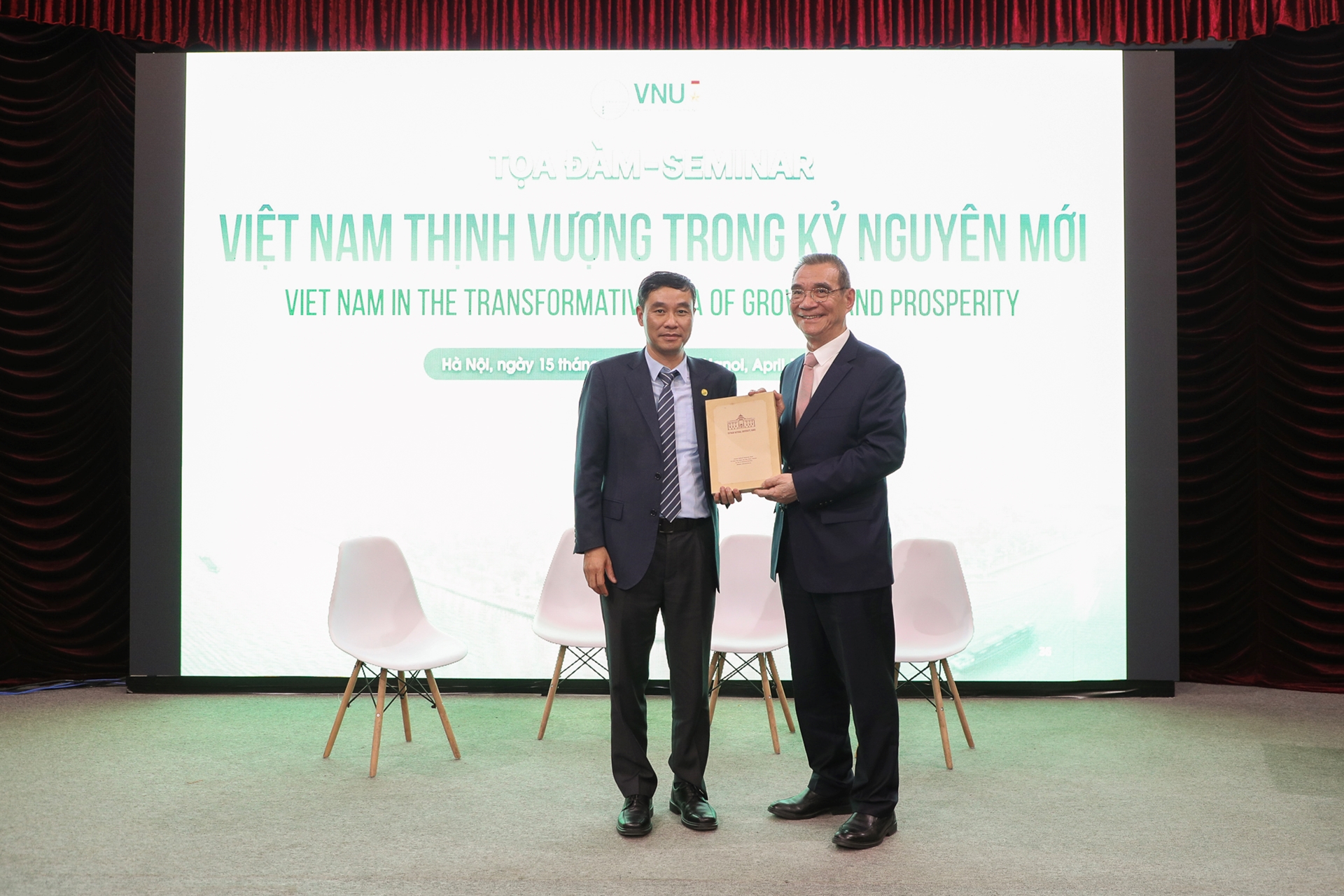 |
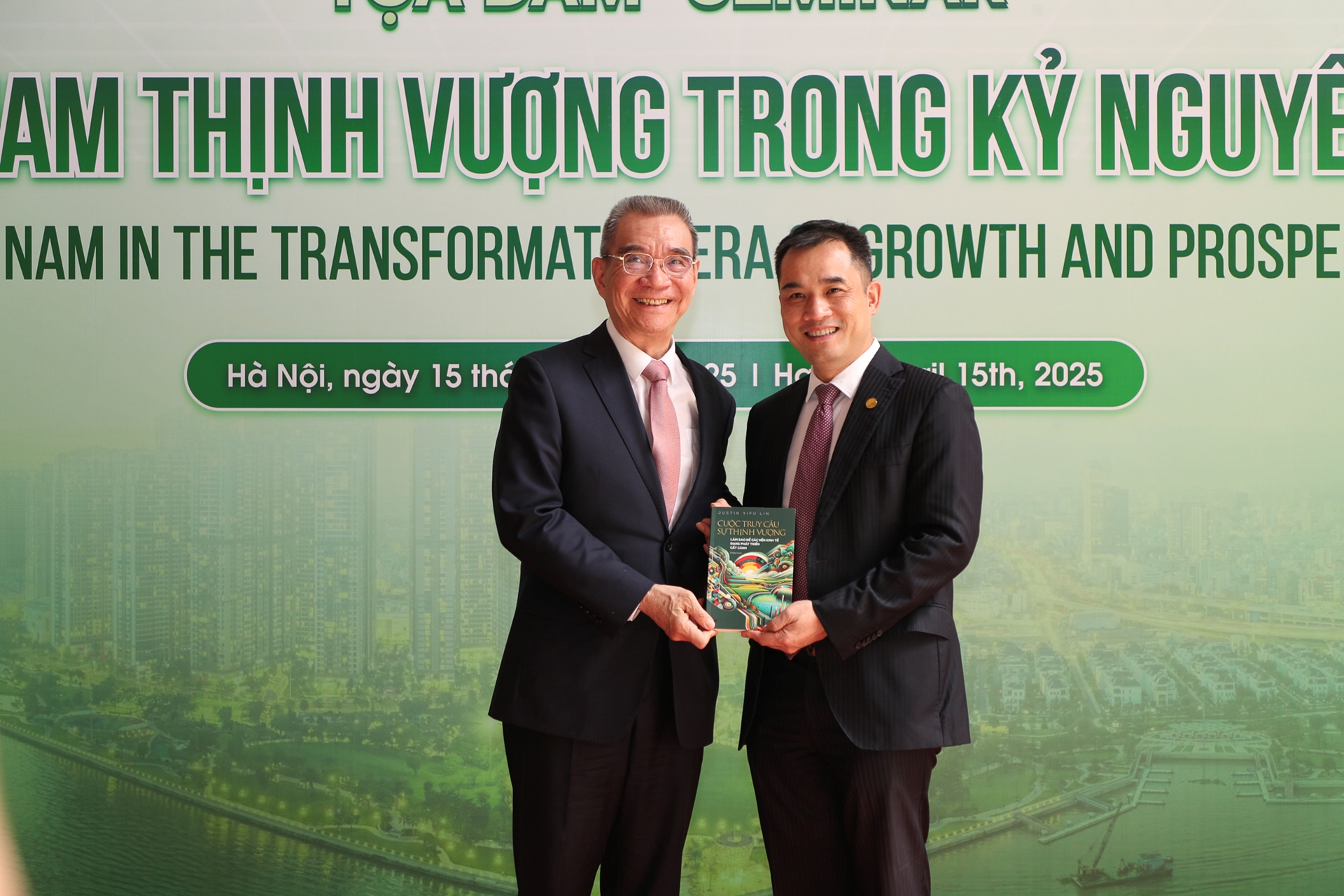 |
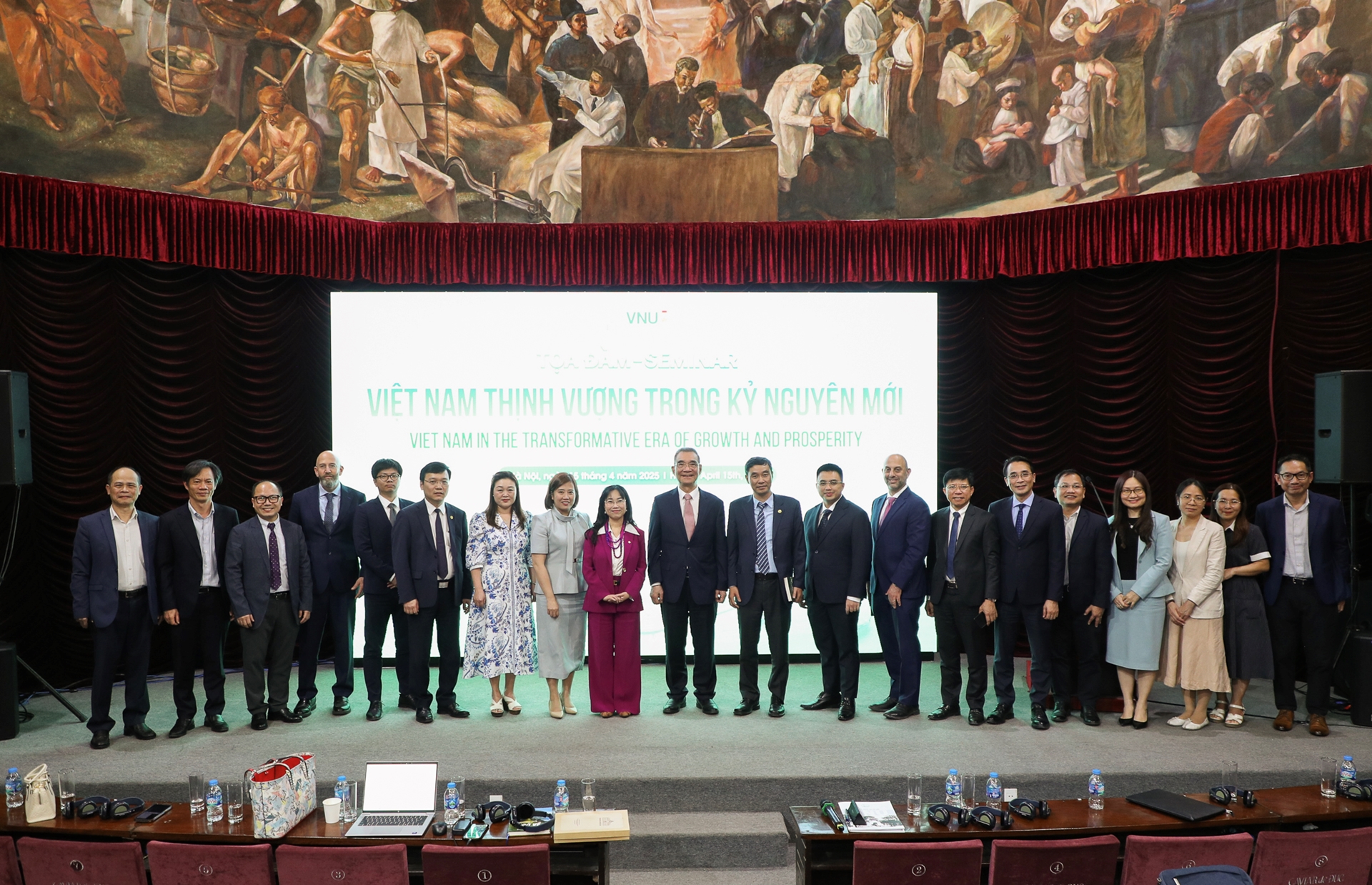 |
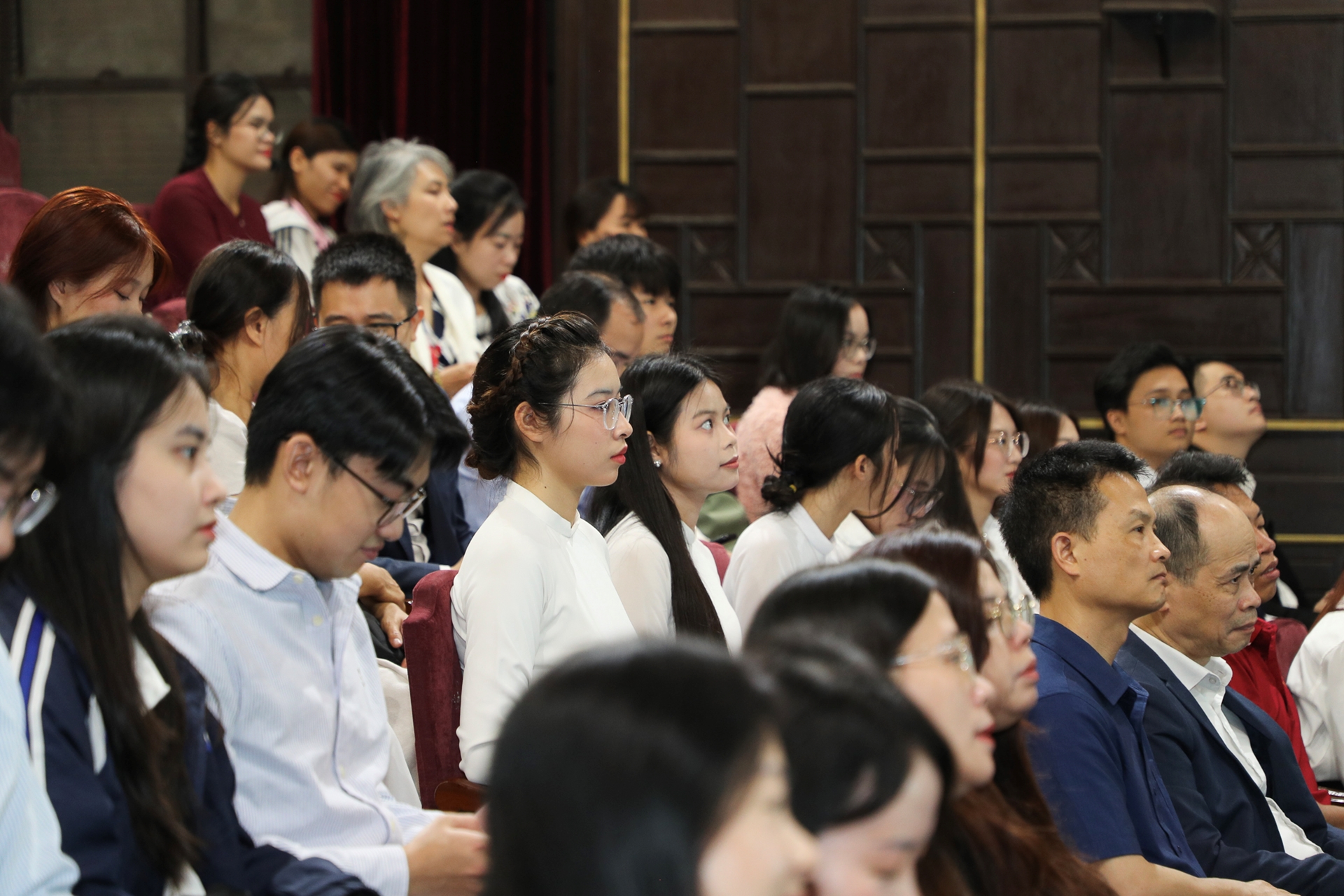 |
